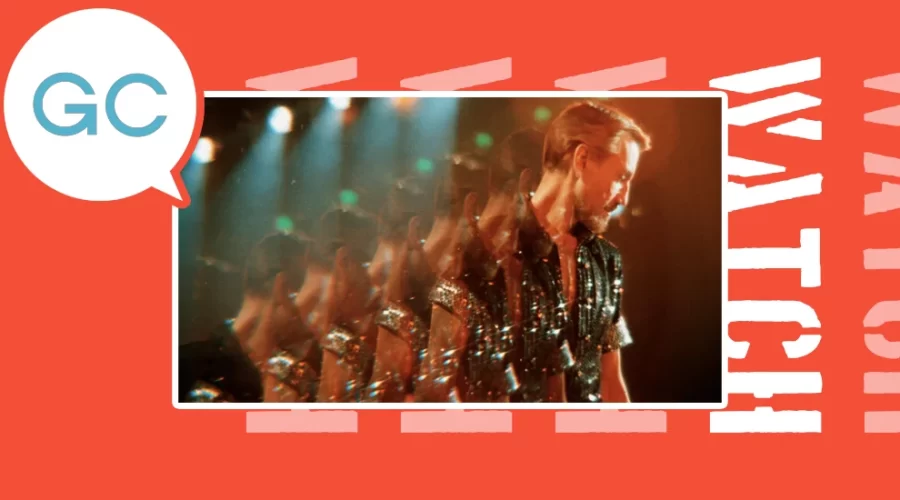Stanley Kubrick called All That Jazz “the best film I think I’ve ever seen” and on first viewing it’s hard not to get swept away with the tumultuous bombast of Bob Fosse’s semi-autobiographical treatise of life, death and the meaning of art. From the off we are straddling cinematic ley lines that zag from Fellini’s 8 ½ to Kubrick’s own A Clockwork Orange before hurtling into the future (or is now the past?) of Aronofsky’s Requiem for a Dream.
Fosse’s doppelganger, director and choreographer Joe Gideon, played with wiry, lithe abandon by Roy Scheider has a strict regimen that he sticks to faithfully and fatally every day, seen in a rapid-fire montage of Vivaldi, showers, pills, eyedrops, and cigarettes.
Even in the steaming hot shower Gideon excretes a sheen of clammy sweat that his lifestyle continually produces – a constant reminder of his mortality that leaks away a little more each day, the fluid of his soul slowly, inexorably, dissipating.
Scheider’s Gideon sits on his haunches as he auditions a stage full of dancers for his latest Broadway show NY/LA. He’s part matador, part Errol Flynn pirate, black jackboots reminiscent of an off-duty Nazi officer chasing Parisian dancers with the faux charm that comes with absolute authority. Cigarettes and coffee are always close companions, a whistle gleams around his neck but is never used, the waxy pallor of Gideon’s skin the mounting cost of genius.
The filmmaking here is breathtaking, a montage set to the driving, hypnotic beat of George Benson’s version of On Broadway, as Gideon, with no small amount of charm and panache, ruthlessly cuts down the auditioners to his favoured troupe of dancers. Each of Gideon’s chosen zealots dazzle in their ability through ferocious match cutting as each one pirouettes with such fervour they could explode at any moment into rapture.
Watching from afar are the backers and Gideon’s long-suffering producers, faces set in masks of concern and calculation. They know the price of brilliance, and more importantly, the budget line it endangers.
But Gideon’s mania is its own kind of religion; the dancers his congregation, the theatre his cathedral, and the show, always the show, his path to some higher truth or absolution.
Every frame Fosse directs carries the weight of inevitability, the same weight pulling Gideon into his spiralling self-annihilation.
Scheider’s performance is volcanic and brittle in equal measure. Beneath the dazzling grin and rapid-fire charm is a man picking at his own seams, terrified that if he ever stops performing, he might vanish altogether. The astonishing dance numbers he shares with the triumvirate of women in his life, his wife, girlfriend and daughter, bear this out as a man who can only communicate effectively through his art.
Each interaction is witnessed through a protective lens of interpretation and Gideon’s childlike sense of charm and wonder stops them from ever truly hating him and disguises his idiosyncratic brand of benevolent toxic masculinity.
The brilliance of All That Jazz isn’t just in its choreography or its hypnotic cinematography, it’s in its refusal to flinch from the grotesque seduction of ego. Fosse builds a mirror into the screen, not for us to see ourselves, but for us to watch Gideon and by extension, Fosse unravels piece by brilliant, agonizing piece.
All That Jazz is a cinematic exorcism, messy, dazzling, cruel, and transcendent
As the film reaches its crescendo, bleeding into surrealist fantasy, absurdist mayhem and literal danse macabre, the audience is no longer just watching a man crumble; we’re invited into the mausoleum of his life’s work.
Here, death wears sequins, smiles like Jessica Lange, and sings showtunes while counting down the minutes until Gideon finally lets go of his extraordinary life.
The Bye Bye Love set piece is an acid-washed progressive masterpiece, a literal expanding, mirrored platform to hubris watched by the cast of Gideon’s life as he ascends to the burlesque chaos he envisions heaven to be, Studio 54 on steroids until the irreversible tracking shot of death pulls the plastic body bag of reality not just from under him, but zips him up thoroughly within it.
Kubrick wasn’t exaggerating. All That Jazz is a cinematic exorcism, messy, dazzling, cruel, and transcendent.
It’s not just about the cost of art, but about whether the art was ever worth the toll.
By the time the credits roll, you feel the answer like a punch in the chest: yes. And no. And everything in between.

